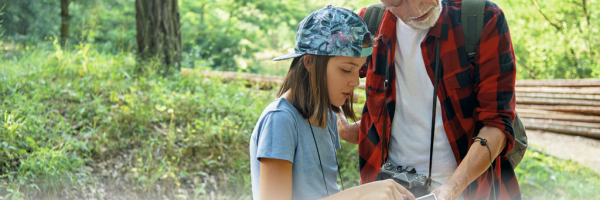Do you know kindness is not only an action or step of generosity, but there is actually a science to how kindness impacts our brains? Yep!
According to The Random Acts of Kindness Foundation, an organization that believes kindness starts with us, “studies show that if you perform one random act of kindness a day, you’ll not only reduce your stress, anxiety, and depression, but your body is flooded with the same hormones that make you and the person you helped calmer, healthier, and happier.”
When we act with kindness, we significantly increase these three hormones in our brain:
- Serotonin (which heals wounds and helps us relax)
- Endorphins (which reduces pain)
- Oxytocin (which reduces blood pressure and makes us feel more loving and loved)
We can increase these hormones by witnessing acts of kindness, engaging in acts of kindness and committing acts of kindness. When we are kind, we help ourselves and others feel more energized.
As we experience the benefits of being kind to our brains and bodies, we are more likely to pay kindness forward. The simplest kind acts can change our day for the better. Try holding the door open for a stranger, helping a neighbor bring their trash cans up the driveway, spot a stranger a few cents if they are short, smile, or let someone go ahead of you in traffic.
We spoke with Gary Dixon, President of Random Acts of Kindness Foundation (RAK), and gleaned his wise perspective on how their organization empowers others toward kindness.
Q: What personally inspired you to join the Random Acts of Kindness team?
A: Kindness is very powerful. It changes you–whether you are extending kindness or receiving it.
Being a part of an organization dedicated to encouraging people to be kind is a remarkable
privilege. It is also a responsibility. There are many people around the world that want to see more
kindness in the world. Helping them put that desire into action is exciting.
Q: What is your philosophy of leadership at RAK?
A: Our role is inspire people with a simple idea–“Kindness Starts With One.” One compliment. One
smile. One kind act. One person. When one person is kind it starts a chain reaction. Our hope is to
see kindness become the norm.
Q: How does working for RAK impact you on a daily basis?
A: When someone is kind to me I want to do something for someone else. When someone lets me into traffic I am compelled to do the same for the next person I encounter. A compliment, a word of encouragement, a note of appreciation–all these things inspire me to be a little better.
Q: How do you and other RAK team members see the science of kindness working in the lives of community members on a daily basis?
A: First of all, I think it is wonderful that the “Science of Kindness” is growing as a legitimate and
recognized part of society. It informs our programs in schools, the workplace and at home. Our
well-researched “Kindness in the Classroom” curriculum is downloaded over 4000 times each
week in 130 countries. Teachers, counselors, therapists, administrators and parents appreciate
the simple lesson plans and practical ideas that help them inspire students to make a difference in
someone’s life. Our “Kindness Concepts” are woven into the various lessons–Respect, Caring,
Courage, Responsibility, Inclusion and Integrity.
The science of kindness and its benefits also underlies our work with the “RAKtivists,” a
self-selected group of individuals (20,000 and growing) from around the world who receive an
assignment each month to put kindness into action in their communities.
Each February, we coordinate “Random Acts of Kindness Day” with a social and digital media
following averaging over 500 million impressions. Corporations, sports teams, celebrities, and
individuals share kindness ideas and touching stories that amaze and motivate.
Q: Any other thoughts you’d like to share?
A: Kindness is truly the umbrella value for life. Essentially, every other character trait falls under the concept of kindness. If you are generous, empathetic, a listener, encouraging, helpful…or almost any other value you can name, it will likely fall under the category of kindness.
And there you have it! Kindness does a brain good. Science is Kind. Pass it on!
For more information on Random Acts of Kindness Foundation enjoy their website: https://www.randomactsofkindness.org/ and learn more about the science of kindness at http://cityofkindness.org/portfolio/science-of-kindness/.


